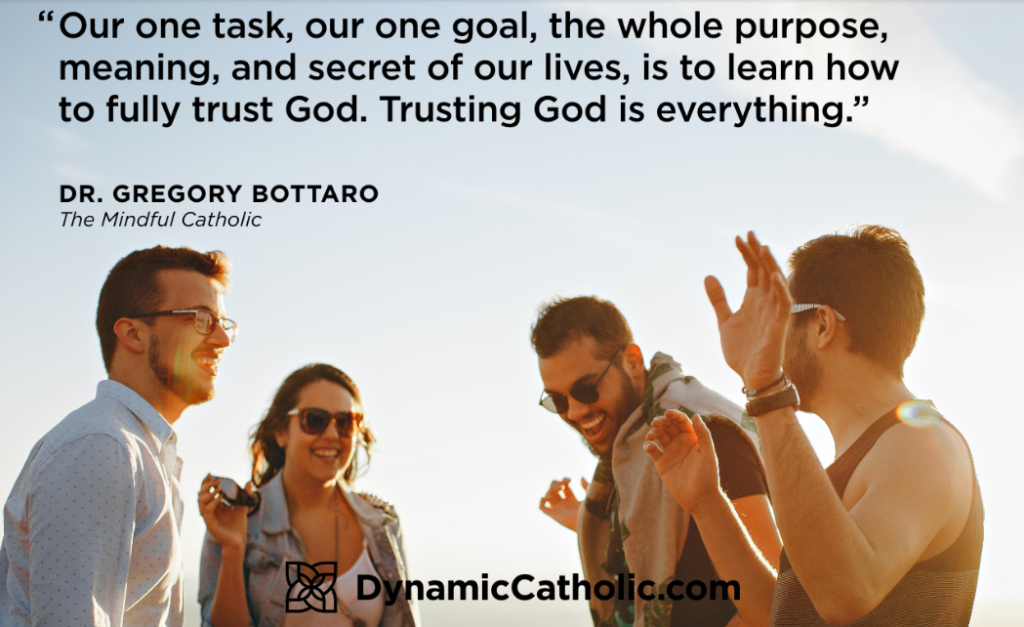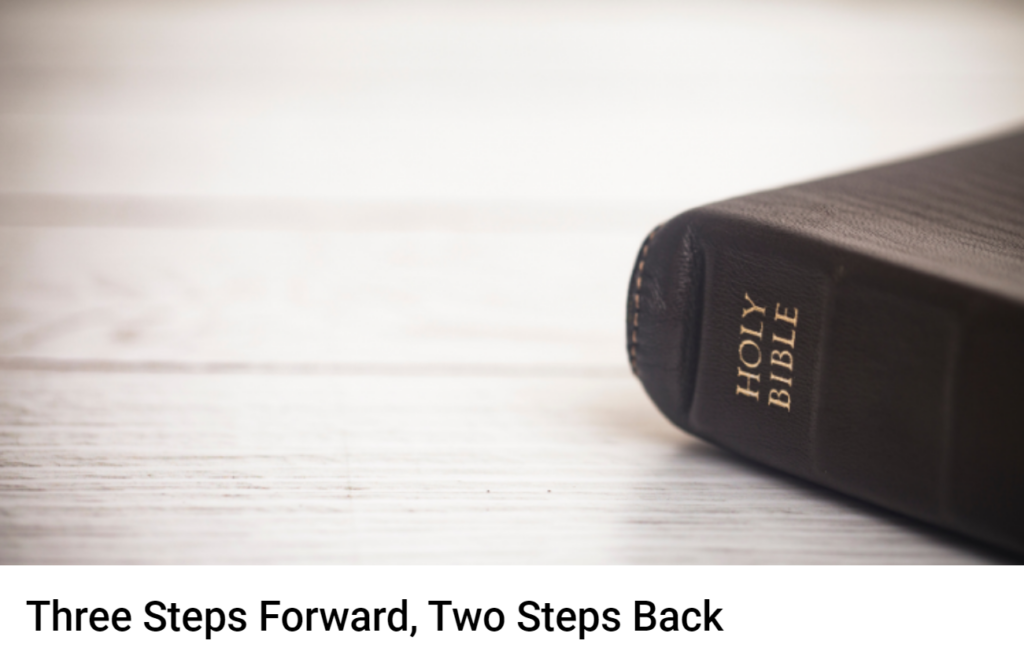
Daily Reflection – Trusting God is Everything


416 N 2nd St, Albemarle NC 28001 | (704) 982-2910



The genius of the biblical revelation is that it doesn’t just give us the conclusions; it gives us both the process of getting there and the inner and outer authority to trust that process. Life itself—and Scripture too—is always three steps forward and two steps backward. It gets the point and then loses it or doubts it. In that, the biblical text mirrors our own human consciousness and journey. Our job is to see where the three-steps-forward texts are heading (invariably toward mercy, forgiveness, inclusion, nonviolence, and trust), which gives us the ability to clearly recognize and understand the two-steps-backward texts (which are usually about vengeance, divine pettiness, law over grace, form over substance, and technique over relationship). This is what we cannot discern if we have no inner experience of how God works in our own lives!
— from the book Things Hidden: Scripture as Spirituality by Richard Rohr, OFM
//Franciscan Media//

“We trust ourselves to a doctor because we suppose he knows his business. He orders an operation which involves cutting away part of our body and we accept it. We are grateful to him and pay him a large fee because we judge he would not act as he does unless the remedy were necessary, and we must rely on his skill. Yet we are unwilling to treat God in the same way! It looks as if we do not trust His wisdom and are afraid He cannot do His job properly. We allow ourselves to be operated on by a man who may easily make a mistake—a mistake which may cost us our life—and protest when God sets to work on us. If we could see all He sees we would unhesitatingly wish all He wishes.”— Fr. Jean Baptiste Saint-Jure, p. 90
//Catholic Company//
The question “Do you really trust God?” was right in Father Mark-Mary’s face when a full-grown rhinoceros was running toward him in South Africa. The rangers with him and his group on that walking safari told the group to stop, but then the rhino charged at them. Its big ugly horn came closer and closer, but then the rangers did the most unexpected thing. They ran at the beast, screaming as loud as they could. Then the rhinoceros ran off. The lie that we can’t trust God is like that rhinoceros. Father Mark-Mary challenges us to run straight toward that lie, remembering these words from Christ: “And every one who has left houses or brothers or sisters or father or mother or children or lands, for my name’s sake, will receive a hundredfold, and inherit eternal life” (Matthew 19:29)
If you’re struggling to hear God’s voice, take heart in Fr. Mark-Mary’s words of hope here. Complementing the advice given by Jackie and Bobby Angel in their new book, Fr. Mark-Mary encourages you to trust in God’s guidance. He recounts the time when he was working as a missionary in Honduras providing for the poorest families there. The decisions he had to make to ensure the most needy families received food from his mission weighed on him tremendously. Only by praying, deciding, and trusting in God’s providence was he able to proceed and provide the help the families needed. Especially in discerning his vocation as a Franciscan Friar of the Renewal, Fr. Mark-Mary put God’s will before all else. It seems to have paid off quite well, and that’s why he wants to embolden you to do the same.
Mother Clare and Fr. Mark-Mary discuss how to live with uncertainty. Being uncertain about something isn’t entirely problematic, because uncertainty requires that we trust something or someone. Often we put that trust in empirical research, the scientific method, tried and true procedures, and so on. How often do we put our trust in God when we are uncertain about something, though. Sometimes trusting God requires letting go of our trust in ourselves. When Peter was invited by Jesus to walk onto the water, Peter had to let go of his understanding of reality. His uncertainty got the best of him after just a few steps, but perhaps there is a lesson in that as well. We often want God to give us the grace and certainty needed for several steps ahead, but he only gives us certainty in our next step so we have to trust each step we take. God gives you sufficient grace for today, not tomorrow, next week or fifty years from now.

“I place trust in God, my creator, in all things; I love Him with all my heart.”
— St. Joan of Arc
//The Catholic Company//

